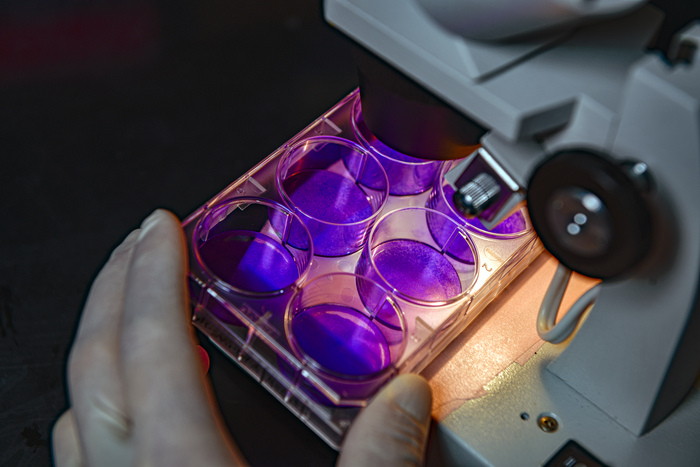Infectious disease experts from both West Virginia University and Marshall University will team up to identify and track SARS-CoV-2 variants circulating in West Virginia in hopes of preparing for and preventing future outbreaks.

Credit: WVU Photo/Brian Persinger
Infectious disease experts from both West Virginia University and Marshall University will team up to identify and track SARS-CoV-2 variants circulating in West Virginia in hopes of preparing for and preventing future outbreaks.
A $678,030 grant from the National Institutes of Health will assist researchers in conducting genomic sequence analyses to identify COVID-19 variants by leveraging three existing testing programs: the Rapid Acceleration of Diagnosis in Underserved Populations, surveillance testing among nursing home residents and staff, and WVU testing.
Project investigators include Dr. Sally Hodder (WVU) and her colleagues Peter Stoilov (WVU), Don Primerano (Marshall) and Jim Denvir (Marshall) to sequence COVID-19 samples for purposes of understanding the epidemiology of SARS-CoV-2 variants in West Virginia.
“The objective of this project is to describe emergence and spread of SARS-CoV-2 virus in West Virginia counties and communities,” said Hodder, project principal investigator, director of the West Virginia Clinical and Translational Institute and associate vice president for clinical and translational science at WVU. “This information will help public health officials understand how the prevalence of different variants changes over time and if there are unique distributions of variants among different areas of the state.”
The project also relies on a cohesive statewide team led by Laura Gibson, senior associate vice president for research and graduate education and vice dean of research at the WVU School of Medicine, who worked tirelessly since early in the pandemic establishing the WVU Rapid Development Laboratory to develop and scale up SARS-CoV-2 testing. In the spring of 2021, the team initiated SARS-CoV-2 sequencing in collaboration with the WVU Department of Pathology, WVU Genomics Core and the Marshall University Genomics Core.
“Sequencing provides a detailed picture of the SARS-Cov-2 variants we have in the population, how they spread and how they change over time,” said Stoilov, associate professor of biochemistry. “Sequencing is one part of a multipronged effort at WVU to understand the pandemic and assist the state of West Virginia in fighting it. When combined with data, about infection rates, clinical outcomes, vaccination status, etc., it gives us insights that allow us to predict the course of the pandemic and act preemptively.”
Earlier this year, Stoilov compared genomic sequencing to piecing together a jigsaw puzzle: Imagine viral RNA as a single component that’s broken into one million pieces. In reassembling the pieces together, if there’s a chipped corner or if a piece doesn’t fit snugly, that’s a virus mutation or variant.
Stoilov leads the COVID-19 testing and sequencing effort at the WVU-RDL.
The WVCTSI bioinformatics group, led by Wes Kimble, director of research data analytics, built and currently maintains a sequencing database that can be tied to patient electronic medical records for further research on the effects that variants may have on specific patient outcomes.
West Virginia’s population may be highly vulnerable to emergent variants that impact the effectiveness of vaccines and therapeutic monoclonal antibodies. Large-scale SARS-CoV-2 genomic surveillance will provide data that can be used with other existing data to facilitate understanding of the effect of specific variants on COVID-19 transmission and disease severity.
Investigators anticipate sequencing around 8,000 SARS-Cov-2 genomes, with the bulk completed in the first five months of this project.
The funding for this project is supported by the National Institute of General Medical Sciences of the National Institutes of Health under Award Number U54GM104942. The content is solely the responsibility of the authors and does not necessarily represent the official views of the National Institutes of Health.




